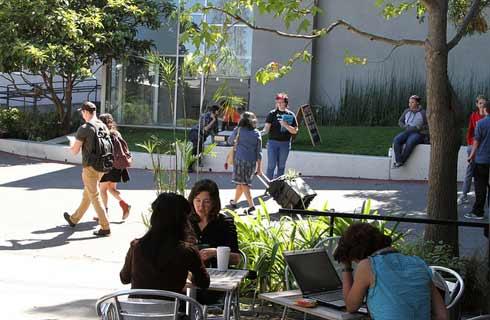国际学生入学条件
First-year international applicants are foreign nationals who will complete high school by the end of the current academic year. Foreign nationals are students living outside the U.S. or living in the U.S. who hold, or intend to hold, a valid F-1, J-1, H-1, H-4 etc. visa/status, as well as those pending Permanent Residency status. Rice’s international student designation is based on residency or citizenship status rather than where a student lives and studies.
Students who have elected to take time off from schooling between graduating from high school and enrolling in college are considered first-year applicants.
Completion of a high school diploma (or an equivalent) prior to enrollment is required for all new incoming students.
Official high school/secondary school transcripts must include grades from 9th through 11th grade as well as courses being taken in the 12th grade. Early Decision applicants are encouraged to submit first marking period grades, when they become available. Regular Decision applicants will be required to submit mid-year grades from 12th grade, when they become available.
Applicants studying in an international exam-based curriculum, must submit:
All official high school transcripts
Final exam results (for example IGCE/GCSE, CBSE X/AISSCE X)
Predicted exam results, if available
All official transcripts/documents must be issued in English. If not, an official translation of all documents must be provided along with the original language documents. Translations may be done by the institution attended or an authorized/official translator in the country of study.
Official high school transcripts must be submitted by your high school via the application platform (Common App or Apply Coalition with Scoir), through an online ordering system or eTranscript service, or sent via postal mail directly to the Office of Admission. Transcripts will not be accepted by fax or email.
Test of English as a Foreign Language (TOEFL) 100 (Internet-based test)
International English Language Testing System (IELTS) 7
Duolingo 130
Advanced Placement (AP) Exams
Rice University awards transfer credit for the Advanced Placement (AP) Program, which enables high school students to earn transfer credit for college-level courses taken in high school upon completion of AP examinations with a score of 4 or 5. For more information about the AP transfer credit process, please visit the Advanced Placement (AP) Credit page.
International Baccalaureate (IB) Exams
Rice University awards transfer credit for International Baccalaureate (IB) examinations for students who hold the International Baccalaureate Diploma and have obtained a score of 6 or 7 on higher level exams. For more information about the IB transfer credit process, please visit the International Baccalaureate (IB) Credit page.
International Exams
Students who complete various international exams with a grade of A or B may receive transfer credit. These exams include A-Levels, the Abitur, CAPE, CEGEP (Science Option), French Baccalauréat (Science Option), Italian Maturita, and Swiss Federal Maturity Certificate. For more information about the international exams transfer credit process, please visit the International Exam Credit page.
展开
IDP—雅思考试联合主办方

雅思考试总分
7.0
- 雅思总分:7
- 托福网考总分:100
- 托福笔试总分:160
- 其他语言考试:Duolingo - 130
CRICOS代码:
申请截止日期: 请与IDP联系 以获取详细信息。
课程简介
在获得生态学和进化生物学专业的学士学位后,学生将能够:找到主要的科学文献,并展示运用批判性思维和解决问题的能力来评估已发表和拟议的生物科学研究并将其应用的能力。开发独立研究项目的技能。演示应用现代科学方法的能力,包括设计实验和/或建立数学模型,使用常见的统计方法和软件程序收集,分析和解释数据。表现出有效的口头和书面交流技巧,包括与他人进行有效交流和合作的能力,以及解释和交流原始研究结果的能力。
Program Learning Outcomes for the BA Degree with a Major in Environmental Science<br>Upon completing the BA degree with a major in Environmental Science, students will be able to: <br><br>Demonstrate foundational knowledge in the natural sciences that is fundamental to the environmental sciences or application of the environmental sciences to other fields. <br>Integrate knowledge of natural and applied sciences to understand complex natural systems and cycles. <br>Synthesize knowledge from natural sciences and engineering and understand how it applies to the study of the environment. <br>Understand environmental issues from a scientific perspective and be able to solve issues using a variety of interdisciplinary perspectives (e.g., social sciences, economics, humanities, and/or architecture).
展开







 预科
预科 奖学金
奖学金 实习机会
实习机会 在校学习
在校学习 跨境学习
跨境学习 校园授课-线上开始
校园授课-线上开始 在线/远程学习
在线/远程学习


 劳伦森大学
劳伦森大学

 特伦特大学
特伦特大学

 曼尼托巴大学
曼尼托巴大学

 麦吉尔大学继续教育学院
麦吉尔大学继续教育学院

 卡尔加里大学
卡尔加里大学

 阿尔伯塔大学
阿尔伯塔大学









 美国
美国





